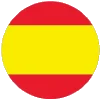
 ENGLISH
ENGLISH
 ENGLISH
ENGLISHInternationaal Theater Amsterdam (ITA) is almost a quarter of century, which was formerly Toneelgroep Amsterdam. Ivo van Hove (Belgium, 1958) is one of the most prestigious directors and coveted directors in Europe and Broadway. He works in both theatre and opera. And, at long last, he is coming back to Madrid. In 2014, he directed the world premiere of the opera of Ang Lee’s film Brokeback Mountain at Teatro Real. What he brings now is far from that formally, but maybe in the background there are communicating vessels. This is a powerful play based on French author Édouard Louis’s 2018 autobiographical novel Who Killed My Father, written as a letter from son to father. So theatrical, so suggestive and so moving does he find Louis' prose, that van Hove has also staged another of his novels, which is the sequel to Combats et métamorphoses d'une femme ( A Woman's Battles and Transformations) He writes as his own mother about the searing and sympathetic story of her liberation after she left the author’s actual father.
Louis, born in 1992, ever since the tender age of 21, burst onto the French literary scene and stirred up a storm with his revealing, in the literal sense, writing style. It is a word against invisibility. It is light on veiled existences. And it is his own story, with raw honesty, portraying thousands of lives. His literary works, with his family history and his body as raw materials, are political throwing knives. The power he has conquered through words making himself being heard in the first person, far from being an exercise in narcissism, has created a highly evocative narrative. It is part a political battle-cry about class, privilege and toxic masculinity and part an emotion-soaked story of complicated family love. His voice of desperation can be heard. Because when one has nothing, they are still left with words. When you don’t have a father, when you are mistreated at work, an oppressing discrimination and a manipulative political landscape, life will try to rise above a heavy sense of absence. “Your life proves that we are not what we do, but rather that we are what we haven't done, because the world, or society, stood in our way. Because verdicts, as Didier Eribon calls them, came crashing down on us - gay, trans, female, black, poor - and made certain lives, certain experiences, certain dreams, inaccessible to us.”
Director Ivo van Hove translated and adapted the text to elicit a performance of captivating intensity incorporating Hans Kesting’s voice and body. Kesting is split between this premature old man who at 50 is a wreck of a man after years of hard work in tough jobs in northern France, and a son who, visiting him after a long time, finds the remains of the one who was once the object of his rage. The anger is directed as a political diatribe. Ivo van Hove states: “Louis explains this to the elite, for whom politics is primarily an 'aesthetic issue': they engage in politics that has virtually no influence on their lives. The underclass, on the other hand, is devastated by cutbacks in benefits.” For some, the welfare state is something that is spoken about at press conferences and makes people feel good; for others, it is a complete farce and an ugly joke. Édouard Louis tweeted to Macron: “My book is against who you are and what you do. I write to disgrace you.”
Who Killed My Father is a bid to understand the socio-political forces that shape and transform the lives of individuals dismissed by society as if they were nothing. These forces not only erode at one’s personality with burning acidity, distorting it through what is accepted or rejected as conventional behaviour for the box society places you in or gender, but also physically destroys you. You become a body that does not matter, as Judith Butler would say. But there is the theatre. This was a place that Édouard Louis went to since the age of 12. He says he felt like he was something at the theatre club he joined and not just a homosexual in a hostile world. The theatre, with the body of a dedicated actor and a text as powerful as this one, becomes a whip and a feather, a caress and a scream, a political emotion.